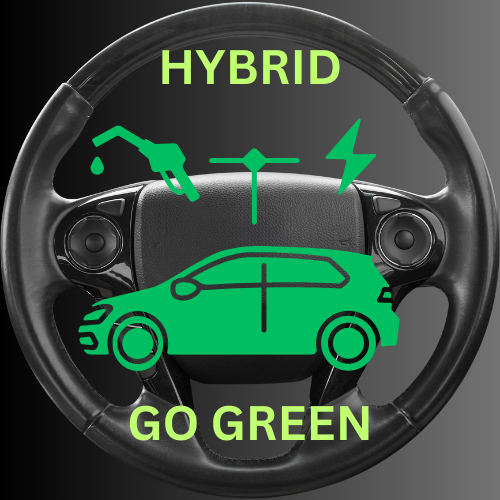India’s Push for Zero-Emission Technology
Electric vs. Hybrid: India’s Tax Strategy” explores the government’s focused approach on promoting electric vehicles through distinctive tax policies, shaping the future of green mobility in the nation. In a significant move, G20 Sherpa Amitabh Kant underscored India’s unwavering commitment to advancing zero-emission technology by maintaining a clear distinction in tariff rates between electric and hybrid vehicles. This effort is part of a larger strategy to promote clean and green mobility across the country. Addressing an audience at the Mercedes-Benz Research and Development India event, Kant reiterated the government’s determination to make electric vehicles (EVs) the foundation of India’s sustainable transportation future.
“We have instituted a tax policy where electric vehicles enjoy a minimal 5% tax, while hybrids face a much higher rate of 48%, and this disparity is here to stay in the long term,” Kant said. This policy framework seeks to create an environment where both manufacturers and consumers are motivated to prioritize electric vehicles over hybrids.

Tensions Within the Automotive Industry
The government’s stance on maintaining this wide tax gap between electric and hybrid vehicles has caused tension among different players in the Indian automotive industry. Japanese automakers like Maruti Suzuki, Toyota, and Honda have pushed for a reduction in the 48% tax on hybrid vehicles, arguing that hybrids are far cleaner than traditional petrol-powered cars. According to them, these vehicles serve as an essential stepping stone toward achieving a cleaner, more sustainable future for transportation in India.
However, homegrown companies like Tata Motors and Mahindra & Mahindra oppose any reduction in the tax on hybrids. They argue that the focus should remain on zero-emission vehicles, asserting that hybrid technology is merely an intermediate step that should not receive the same level of governmental support as fully electric vehicles. These companies believe that incentivizing only pure electric technologies will better drive the sector toward sustainable growth.
Also Read : India’s EV Market Slips in August: Tata Still on Top
Government’s Legislative Support for EVs
Kant elaborated on the government’s broader legislative efforts to promote the electrification of transportation. “We are utilizing every legislative tool, including the Corporate Average Fuel Economy (CAFE) standards, to increase the penetration of electric vehicles in the Indian market,” he explained. The government’s focus on promoting EVs is evident in its policies that are designed to make India a destination for environmentally friendly transportation solutions.
Expanding Electric Bus Fleets
In addition to private vehicles, the government has also set its sights on transforming public transport with the help of electric buses. During his speech, Kant announced plans for the deployment of approximately 6,000 electric buses in seven major cities across the country. “We are also planning two more tenders, one for 10,000 buses and another for 50,000 buses, which will drastically reduce the costs of electric buses and scale up their adoption,” he added.
This large-scale rollout is expected to drive down the costs of electric buses, making them more accessible to cities and states aiming to shift to greener public transport systems.
A Warning to the Auto Industry
Kant also issued a stark warning: if India fails to take advantage of the current global push towards electric vehicles, the nation could miss out on becoming a world leader in EV production. “We have to act now, or we risk falling behind as the world rapidly transitions to electric mobility,” he cautioned.

Hybrid Exemptions in Uttar Pradesh
While the central government focuses on zero-emission vehicles, the state of Uttar Pradesh has taken a different approach. The state recently announced that plug-in hybrid electric vehicles (PHEVs) and strong hybrid electric vehicles (HEVs) would be exempt from paying registration taxes. This decision is expected to boost hybrid vehicle sales, benefitting manufacturers like Maruti Suzuki, who have invested heavily in hybrid technology.
However, this exemption has drawn criticism from companies like Hyundai Motor India, Kia India, Tata Motors, and Mahindra & Mahindra. These companies argue that providing incentives to hybrid vehicles will slow down the transition to fully electric vehicles, hindering efforts to electrify India’s transport sector as a whole.
Get Best At Amazon
The Brands Behind the Debate
Each automaker involved in this debate brings its own expertise and strategic vision to the table. For example, Maruti Suzuki and Toyota have made significant investments in hybrid vehicle technology, aiming to offer consumers an environmentally conscious alternative that blends the benefits of fuel efficiency with reduced emissions. Their hybrid models cater to consumers looking for a compromise between traditional petrol vehicles and fully electric ones.
On the other hand, Tata Motors and Mahindra & Mahindra are at the forefront of the electric vehicle revolution in India. These companies have committed to the development of cutting-edge EVs and the infrastructure needed to support them, such as charging stations and advanced battery technologies. Tata Motors’ Nexon EV and Mahindra’s XUV400 are notable examples of their progress in the electric vehicle market, and both companies see hybrids as a distraction from the full electrification goal.
Conclusion: A Future Powered by Clean Technology
India’s journey toward greener transportation is marked by divergent strategies, as both policymakers and automakers navigate the balance between immediate technological solutions like hybrids and long-term investments in electric vehicles. While some industry players are pushing for hybrid incentives, the government’s clear support for electric vehicles signals its vision for a future powered by zero-emission technologies.
As more tenders for electric buses are announced and private EV adoption grows, India has the potential to lead the world in sustainable transport. However, the automotive industry must align its strategies with this long-term vision, or risk being left behind in the global race for green mobility leadership.
Sources:


Nice